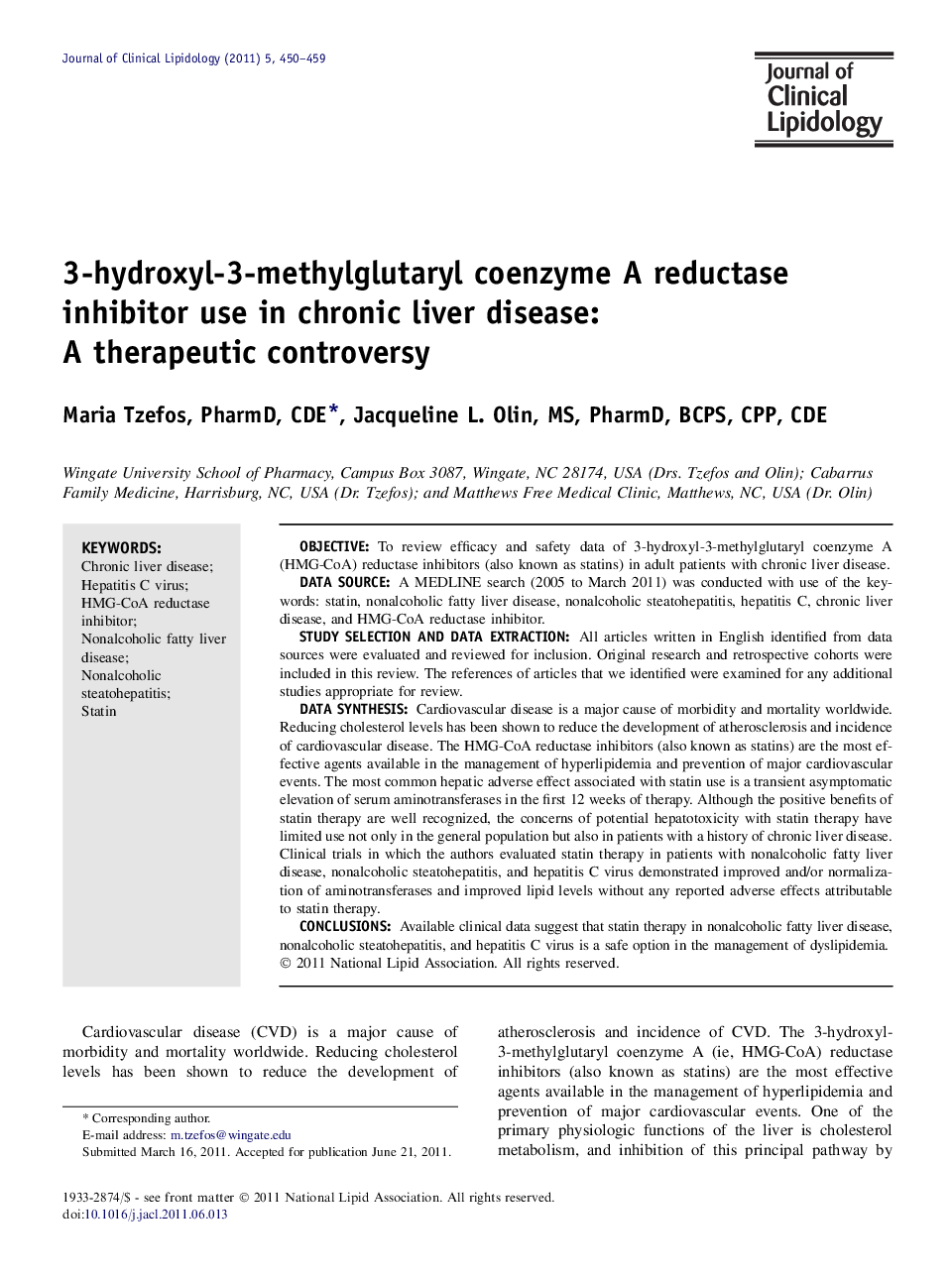| Article ID | Journal | Published Year | Pages | File Type |
|---|---|---|---|---|
| 2966209 | Journal of Clinical Lipidology | 2011 | 10 Pages |
ObjectiveTo review efficacy and safety data of 3-hydroxyl-3-methylglutaryl coenzyme A (HMG-CoA) reductase inhibitors (also known as statins) in adult patients with chronic liver disease.Data SourceA MEDLINE search (2005 to March 2011) was conducted with use of the keywords: statin, nonalcoholic fatty liver disease, nonalcoholic steatohepatitis, hepatitis C, chronic liver disease, and HMG-CoA reductase inhibitor.Study Selection and Data ExtractionAll articles written in English identified from data sources were evaluated and reviewed for inclusion. Original research and retrospective cohorts were included in this review. The references of articles that we identified were examined for any additional studies appropriate for review.Data SynthesisCardiovascular disease is a major cause of morbidity and mortality worldwide. Reducing cholesterol levels has been shown to reduce the development of atherosclerosis and incidence of cardiovascular disease. The HMG-CoA reductase inhibitors (also known as statins) are the most effective agents available in the management of hyperlipidemia and prevention of major cardiovascular events. The most common hepatic adverse effect associated with statin use is a transient asymptomatic elevation of serum aminotransferases in the first 12 weeks of therapy. Although the positive benefits of statin therapy are well recognized, the concerns of potential hepatotoxicity with statin therapy have limited use not only in the general population but also in patients with a history of chronic liver disease. Clinical trials in which the authors evaluated statin therapy in patients with nonalcoholic fatty liver disease, nonalcoholic steatohepatitis, and hepatitis C virus demonstrated improved and/or normalization of aminotransferases and improved lipid levels without any reported adverse effects attributable to statin therapy.ConclusionsAvailable clinical data suggest that statin therapy in nonalcoholic fatty liver disease, nonalcoholic steatohepatitis, and hepatitis C virus is a safe option in the management of dyslipidemia.
